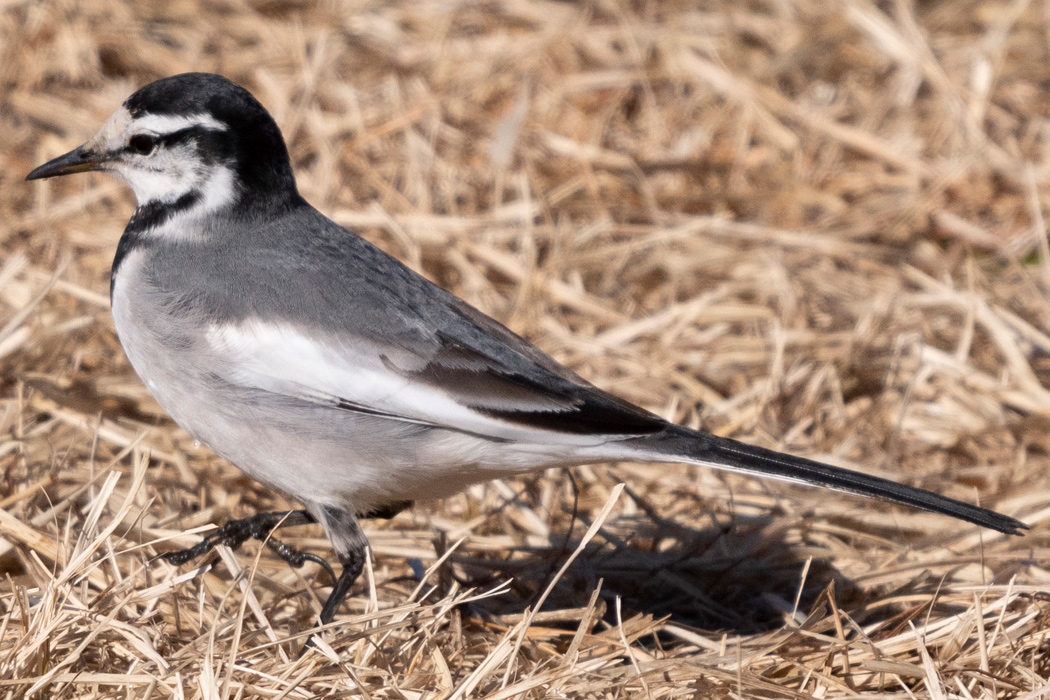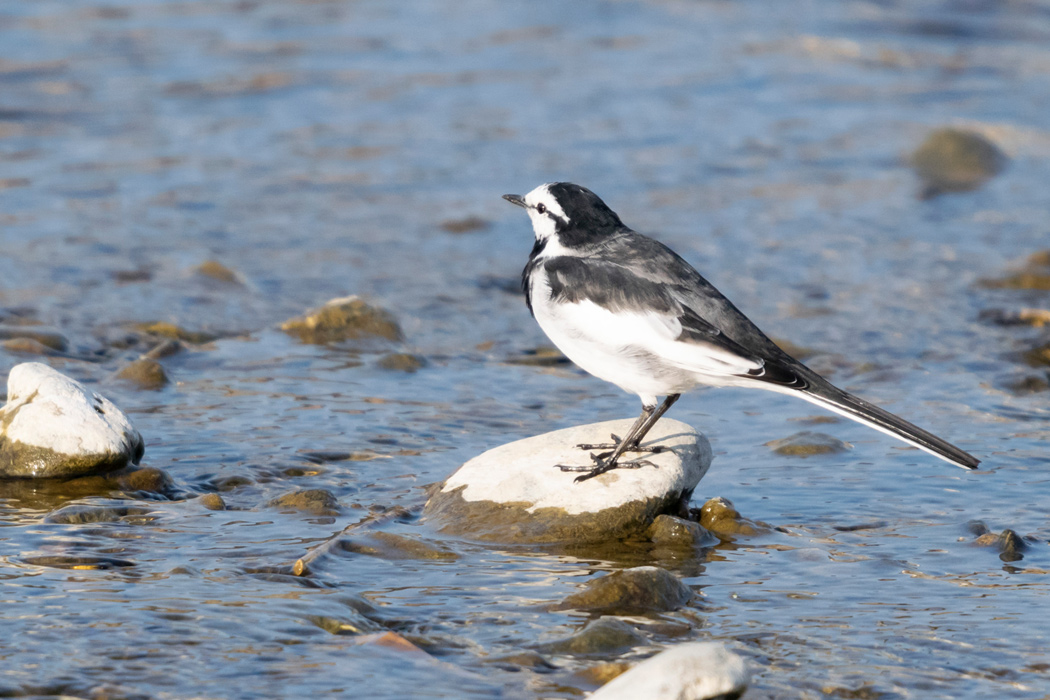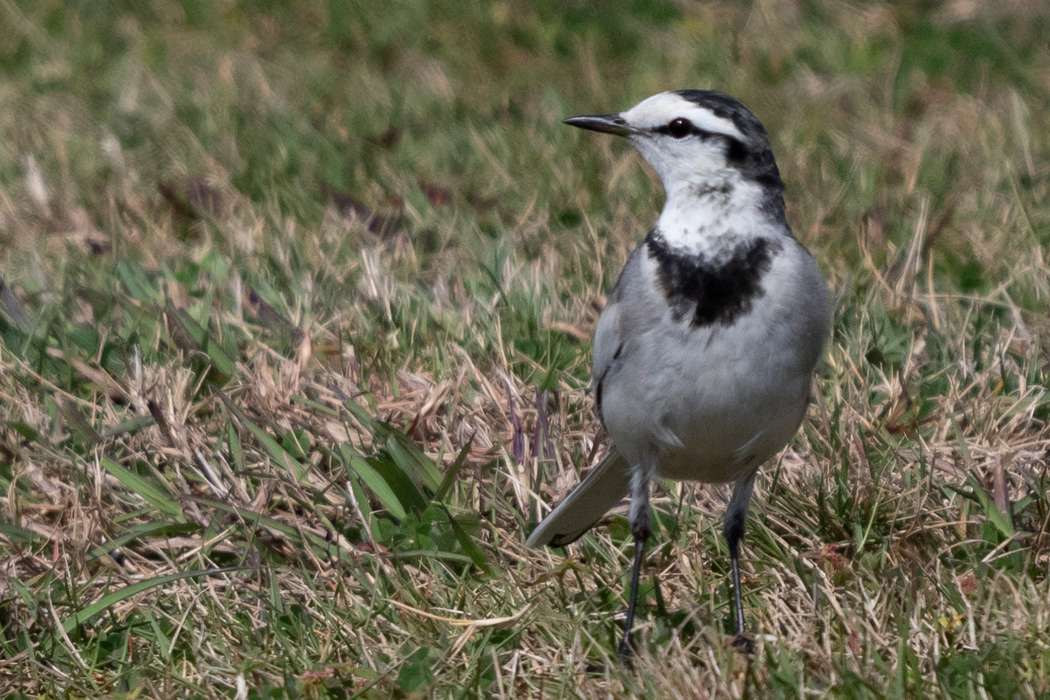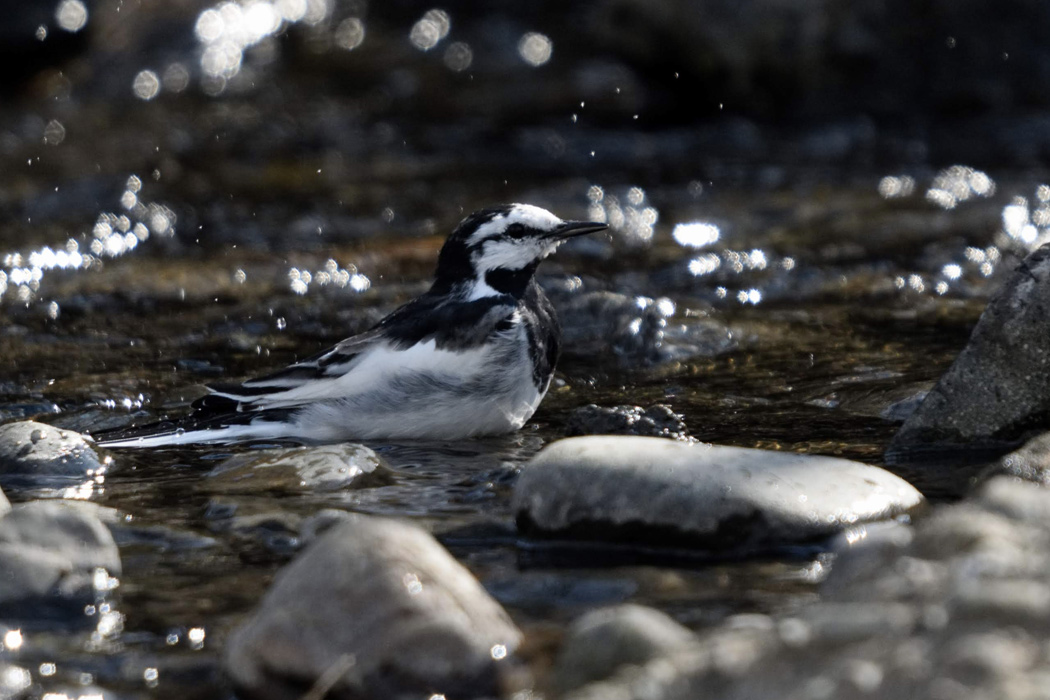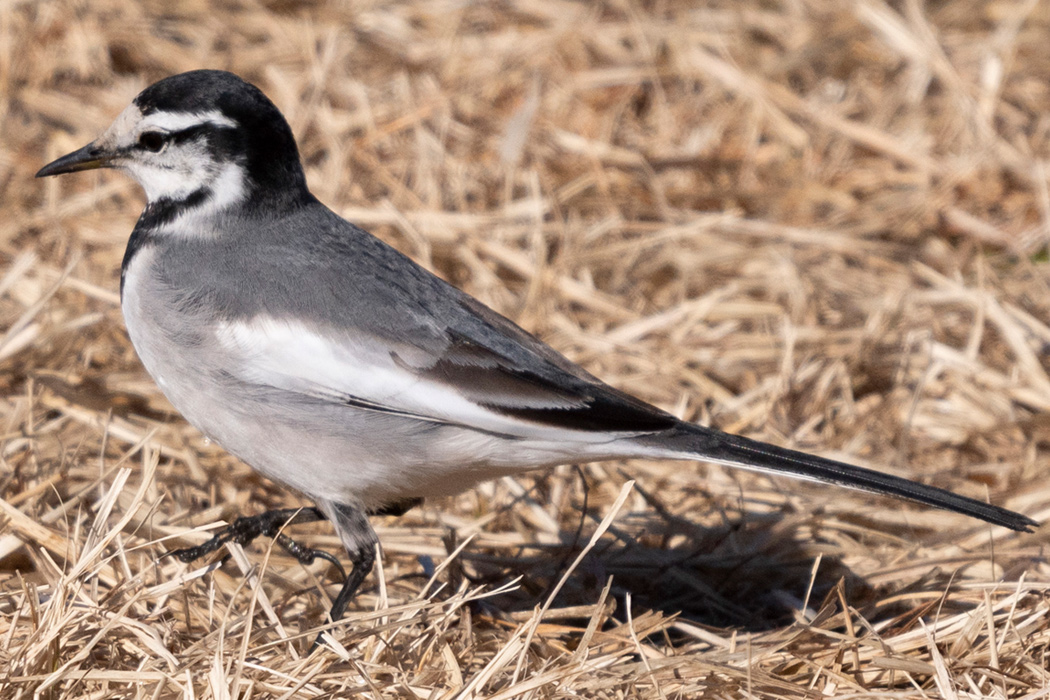
White Wagtail
A familiar bird that raises and lowers its tail.
| Scientific name | Motacilla alba |
| English name | White Wagtail |
| Japanese name | 白鶺鴒 |
| Classification | Aves |
| Classification details | Passeriformes Motacillidae |
| Full length | 21cm |
| Distribution | Widely distributed from Eurasia to northern Africa. |
Characteristics
Wagtails are often seen in towns and along rivers. The color of the body is white and black, which is very similar to the Japanese wagtail. It has an elongated silhouette with a long tail, a white face and a black back. The behavior of walking while swinging its long tail up and down is also characteristic of this bird. The color of the back becomes darker in the summer plumage and lighter in the winter. A straight black eye line runs from the base of the beak across the eyes to the back of the head.
Differences between white wagtails and black-backed wagtails
White wagtails and Japanese wagtails are very similar in appearance and voice.
There is a difference in appearance between the Japanese wagtail that has black under the eyes and the white wagtail that has white even under the eyes. Both species are birds that you can meet closely, so it would be good to actually compare them. Both white wagtails and Japanese wagtails inhabit waterside areas. White wagtails are usually seen in towns and on station platforms. My impression is that white wagtails are more likely to enter the environment where humans live.
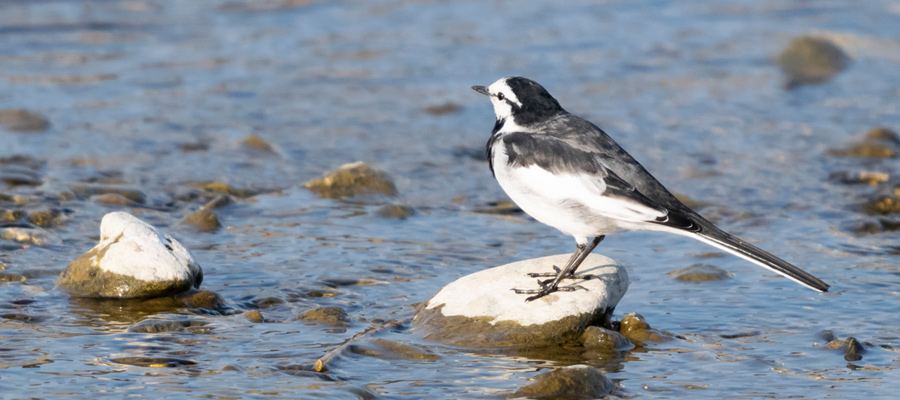
Ecology
Widely inhabits watersides and urban areas. It walks on the ground while swinging its long tail up and down, and eats insects and earthworms. In the summer, they build territories and compete with Japanese wagtails and gray wagtails. When breeding, it moves with light-colored juvenile birds.
Habitat
I took pictures of the riverbed ground and underwater. It is often seen along the roadside in the suburbs as well as along the river. It seems to be less wary of humans, and can sometimes be seen looking for food on station platforms. It seems that it also likes to swim, and sometimes uses it in the shallows of the river. It looks a lot like the Japanese wagtail, so I had a lot of practice identifying it when I first started observing wild birds.
Pictures
Introducing a picture of White Wagtail.
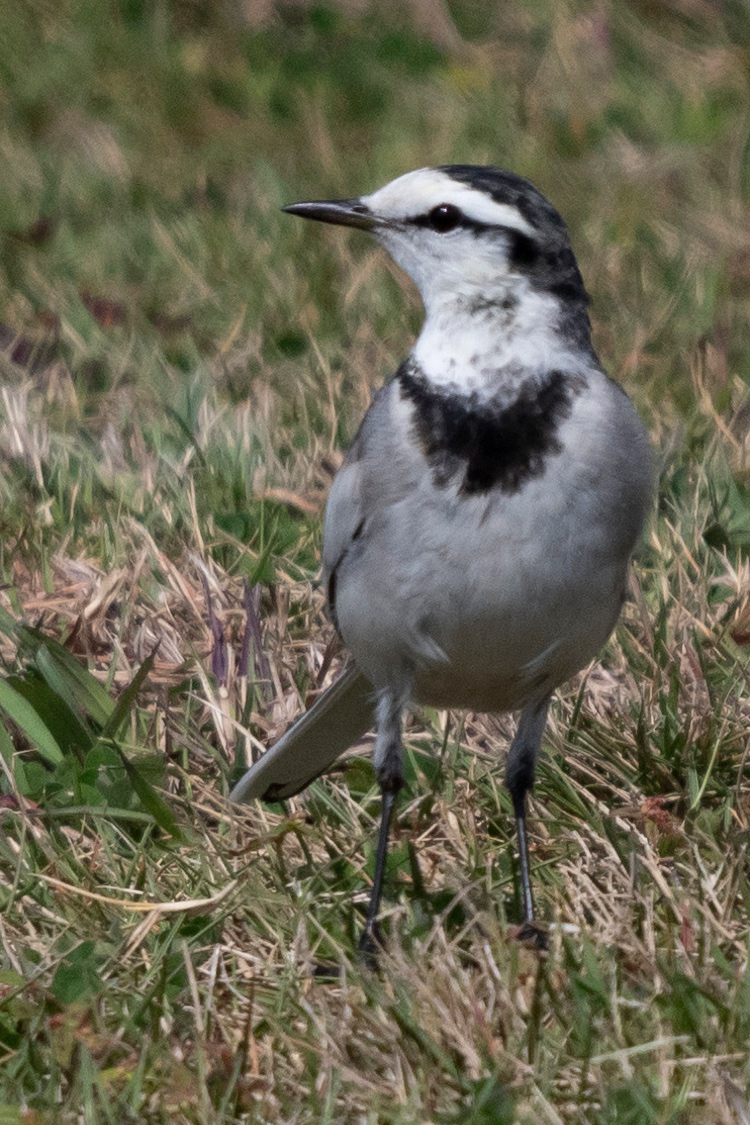
Picture book
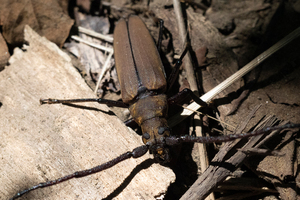
--
The brown upper wings appear thin, just as their Japanese name suggests.......ead more.

Japanese grasshopper
a locust whose wings are longer than its legs.......ead more.

round herring
big-eyed sardines.......ead more.
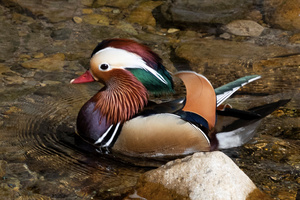
Mandarin duck
Male breeding plumage is colorful.......ead more.
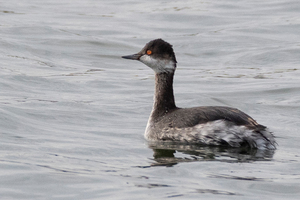
Black-necked Grebe
The iris color is cool.......ead more.
